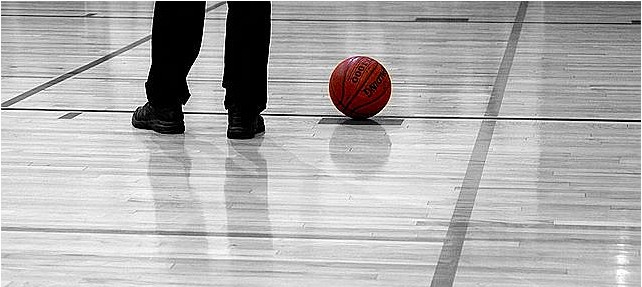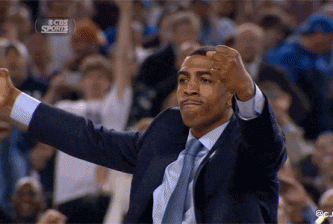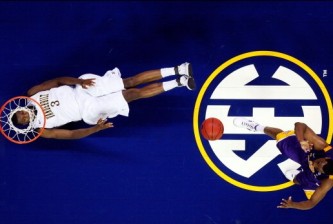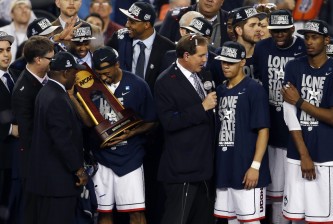
Every year the NCAA rules committee convenes and works on ways to improve the game. Here are five rules they need to fix this year (but won’t).
The restricted arc: Wait, didn’t they just fix this? Sort of. After a couple years of making due with invisible no-charge restricted areas, the NCAA finally had them installed on every floor. Or at least all of the Division I floors. They granted other divisions another year to implement the arcs, because apparently Division II schools don’t have access to paint on an annual basis. That was bizarre decision No. 1. In bizarre decision No. 2, the NCAA decided to show their independence from the NBA by making the area a foot smaller than the NBA circle. What this resulted in was a restricted area in which defenders rarely reside. So charges still get called every time a player is smart enough to flop.
Just make it bigger. The number of charges in the NCAA tournament was obscene.
Shorten the shot clock: Ten years ago there were nearly 68 possessions in an average college basketball game. Now there are a record low 66, and the trend over that 10-year period is decidedly downward. More and more coaches are figuring out that it’s a lot easier to control the tempo if you want to slow things down than it is if you want to speed things up. And one thing coaches crave is control.
I don’t think the shot-clock needs a radical reinvention. The :24 second clock in the NBA is unrealistic and unneeded at this level. But reducing it by about 10% should be closer to the magic line where one style cannot dominate over another style. So I’m proposing a :31 second clock.
Everyone enjoys games with more action. And a simple reduction in a few seconds would do that without unfairly benefiting certain styles.
Change timeouts: How do you know if your sport has too many timeouts? If you can call a timeout, diagram a play, see what the defense is doing on the inbounds play, and then call another timeout to completely scrap plan A and instead go with plan B all without any time ticking off the clock – then your sport has too many timeouts. Right now there’s five. Cut that to four.
And while you’re at it, rules committee, tell television executives to go jump in a lake, and knock out the craziness of four media timeouts per half. Combined with the coaches’ timeouts, that’s 18 stoppages a game. Instead, adopt the Division II rule of media timeouts every 5-minutes, which would cut two out a game.
Basketball games should be introduced, played, and finished within a 2-hour window. That’s no longer happening (especially with the longer NCAA tournament timeouts for more ads, but that’s another column altogether).
Throw away the concept of fouling out: Kill this, the dumbest rule in sports. Imagine if a soccer player or football lineman got tossed out of the game for stepping offsides too many times in a game. There’s already a penalty for fouling. We don’t need two. Too many games are heavily influenced by some ref deciding to call touch fouls 40′ from the basket which have no impact on the game, and then those players have to sit because they’re in “foul trouble.” Let the players play.
Tossing players for two-technical fouls can stay, but don’t even get me started about automatic Flagrant 1 calls for incidental contact. Actually, do get me started. Accidental elbows to the face are part of the game. Rub some dirt on it, don’t award free throws and the ball.
Use two-year scholarships: This is the hardest one for me. One of the great things about this country is that you have the right to pursue your career. Unless, of course, you’re a basketball player. In that case the NBA is off limits until you spend a year making money for the NCAA. The one-and-done rule is stupid. Throw it away. If players want to begin playing professionally before college, so be it. If the NBA doesn’t want them, don’t draft them.
One-year scholarships are also a problem. So kill two birds with one rule by implementing rolling two-year scholarships which can be carried forward by agreement of both parties on an annual basis. Otherwise, the terrorists win.






















